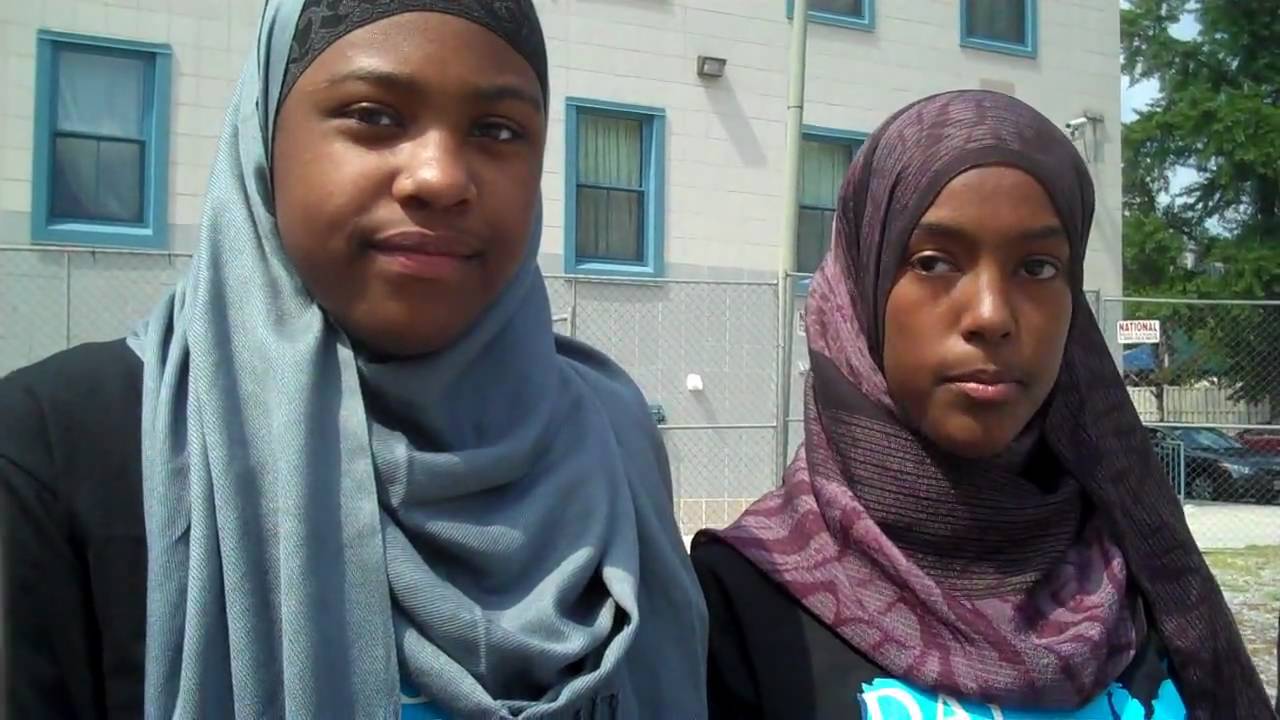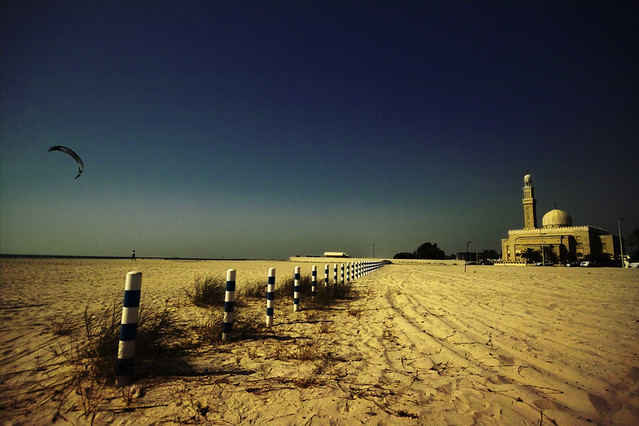President Barack Obama’s national call to service was heard and answered by many Muslim organizations and communities to re-capture the American spirit in the post 9/11 era, to stimulate interfaith activities to be more action-based, and to help re-build local economic landscapes in the wake of the recession. Although these are signs of charitable maturity within the Muslim community, it is still essential that all Muslims catapult these issues to the forefront of their human service agendas.
The American Muslim community has come together like never before to answer President Obama’s national call to service. He has appealed to all Americans across the nation to serve and improve their communities, and even put forward the Edward M. Kennedy Serve America act (passed in August 2009). This call was heard and answered by many Muslim organizations and communities in various community service and interfaith group activities. From July 4th to September 11th, 2009 Muslim-Americans galvanized across the country to meet his challenge, with three key purposes: to re-capture the American spirit in the post 9/11 era, to stimulate interfaith activities to be more action-based, and to help re-build local economic landscapes in the wake of the recession to construct a more resilient United States of America.
For the first time in national history, Muslim-Americans across the country joined to form a grass-roots service organization, United We Serve: Muslim Americans Answer the Call (MAAC), as a response to the President’s request. The organization was formed with the intention of empowering Muslim-American groups already engaged in community service, with the vision of strengthening the fabric of American society by participating in far-reaching community service. MAAC committed to carrying out 1000 days of service for needy Americans all over the United States, in areas as wide-ranging as health care, the environment, education, hunger, homelessness, and gender rights.
This collective movement by Muslim-Americans is closely aligned with the key themes of Islam, as service to humanity is an obligation on all believing Muslims. The Qur’an says:
Verily, those who have attained to faith and do good works, and are constant in prayer, and dispense charity – they shall have their reward with their Sustainer, and no fear need they have, and neither shall they grieve. (2:277)
And,
They believe in God and the Last Day, and enjoin the doing of what is right and forbid the doing of what is wrong, and vie with one another in doing good works: and these are among the righteous. (3:114)
Muslims are encouraged to revere God by serving His creation. As such, community service becomes both an act of civic duty and spirituality. It also leads Muslims and people of other faiths to join in service together, serving as an example of people transcending differences to unite in service of God and country.
Though Muslims have been performing community service on a localized scale for decades, MAAC was the first community renewal effort on a nationwide level, taking place in small towns and metropolises alike. Some examples of programs spearheaded by Muslims in the country included Day of Dignity, a 19-city effort by Islamic Relief and local partners to provide compassionate care to all those in need; Fast 2 Feed, an interfaith Iftar and community service rally where participants brought canned goods or non-perishable food items to be donated to The Salvation Army’s Emergency Assistance Programs in the nations’ capital; Project Downtown‘s nationwide feeding and relief effort sponsored by the Orlando-based Muslim Students Association (MSA); ILM Foundation’s “Humanitarian Day,” which worked to address the issue of homelessness in Southern California by providing education, food and health screenings to those in need, as well as life skills given by the organization’s volunteers to replace social ills and help people get back on their feet post-recession.
There are even more examples of exemplary Muslim-led projects supported by their faith-based counterparts. Often, many of the community service projects by Muslims focus on well-publicized issues such as homelessness, hunger, education, and healthcare. Unfortunately, little attention is typically given to less well-known issues like gender-specific issues and other deeply-rooted social dilemmas. This year was an exception; the most unique issues tackled this year were human trafficking, domestic violence abuse, and refugee adoption. Human trafficking is considered an emerging human rights issue for the 21st century. For this year’s call to service, the American-Muslims Interactive Network (AMIN) partnered with the Bridge to Freedom Foundation to create local awareness about domestic human trafficking issues. Human trafficking, also known as human slavery, involves victims who are forced, defrauded, or coerced into labor or sexual exploitation; most are women and children. The Department of Justice estimates 600,000 to 800,000 people are trafficked across international borders each year, and the trade is growing. AMIN and Bridge to Freedom’s program focused on teaching at-risk communities how to identify traffickers and the trafficked.
Several reasons may explain why Muslim-Americans have hesitated in the past to speak about and act against human trafficking. Perhaps there is a lack of awareness about the problem itself, or they may feel less connected to the issue since the majority of trafficking occurs outside of the United States. There may also be a general sentiment that human trafficking is too large and complex an issue to resolve. This is far from true, since simple acts like donating clothing, accessories, or even professional development items (phones, computers) to victims here and abroad can be extremely helpful in enabling them to reconstruct their lives. This lack of awareness or feeling of helplessness may be aggravated by the taboo nature of human trafficking for many Muslim cultures, since it is usually intertwined with uncomfortable topics like sex and slavery.
The hesitation to deal with subjects like human trafficking and domestic violence could also be because Muslims in America wish to avoid any additional negative press, since the Muslim persona has already been strongly characterized by fear and negativity over the past decade. Understandably, attaching Islam to criminal acts carried out by people who are Muslims is undesirable when, in most scenarios, there is no justification for these acts within the religion. Such was the case earlier this year when domestic violence, not religion, was the cause of 37–year-old Aasiya Zubair Hassan’s murder. Appropriately, her murder spurred an outcry from many Muslims in the United States. However, the media was quick to call the murder an honor killing (indicating it is a cultural practice), when in fact it was a domestic violence case (which is culturally irrelevant). A laudable effort to create awareness on domestic violence was attempted by New York University’s Islamic Center (NYUIC), which donated all of its Fast-A-Thon proceeds to Turning Point, a local organization that works primarily with victims and survivors of domestic abuse. In fact, NYUIC students went even further and, in a display of charitable creativity, partnered with eateries on campus to raise money for the cause. At a time when both businesses and non-profits are suffering, NYUIC students crafted deals with Coldstone Creamery and Five Guys burger joint that encouraged students to buy food from them; a portion of their profits were then donated to the NYUIC Fast-A-Thon charity. The Adopt a Refugee program was another commendable project hosted by the Council for the Advancement of Muslims Professionals in Chicago. They aligned with the UMMA’s Adopt-a-Refugee program, to serve newly arrived refugee families without support structures.
These are signs of charitable maturity within the Muslim community, but it is essential that all Muslims catapult these issues to the forefront of their human service agendas. MAAC was certainly a catalyst for change among Muslim–Americans, and it created an opportunity to build a pro-active portrait of themselves in the public eye. Their efforts demonstrated that the American spirit is alive and well in the country and especially among Muslim-Americans. These programs have helped to nurture strong ties among different faiths, and resuscitate fellow Americans’ lives during a time of economic hardship. In the end, regardless of who organized the event or for what cause, the end goal should remain in sight: that communities can and should be improved through co-operative volunteerism.
(Photo: Courtesy Princeton MSA)
Halima Samad holds a B.A. in Economics and Middle Eastern and Islamic Studies from NYU and currently works at Dow Jones & Company. She serves as a Regional Director for an Interfaith social action organization, World Faith in her spare time.





